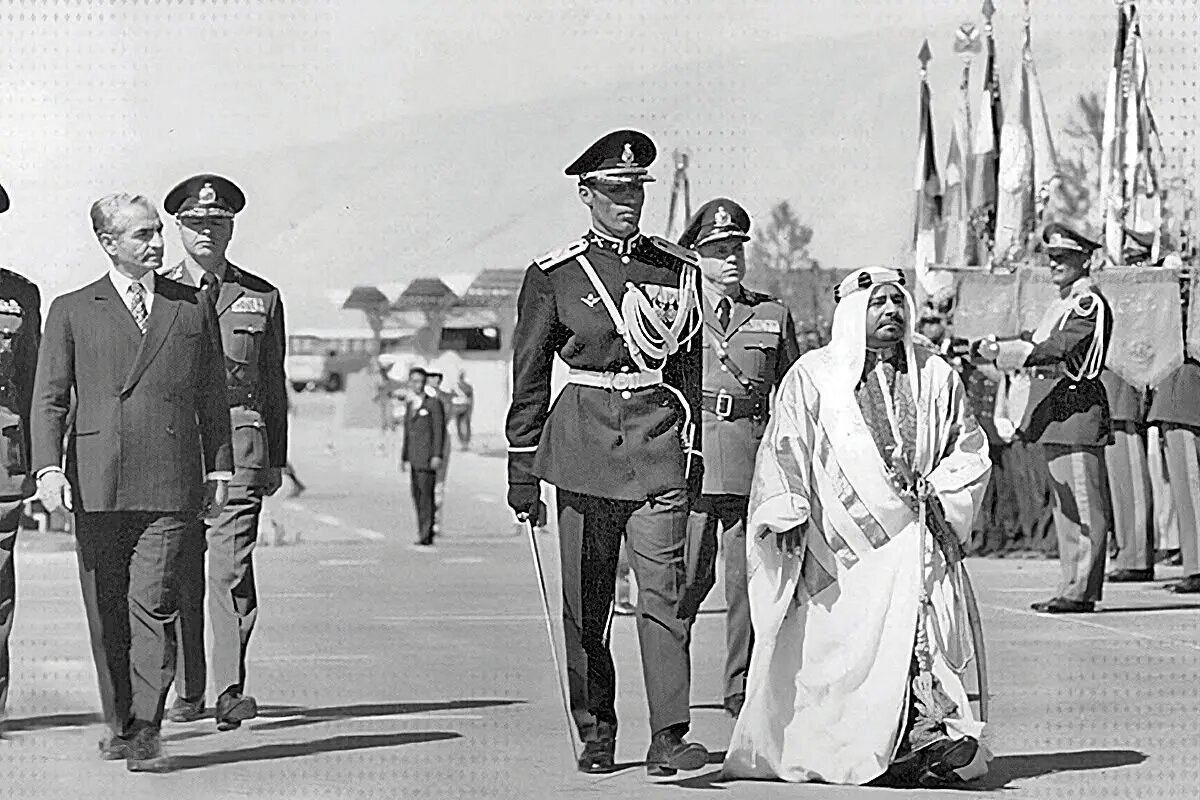How Iran lost Bahrain
A look at Shah's interview that laid the ground for Bahrain's separation from Iran

TEHRAN – Mohammad Reza Pahlavi, the last Shah of Iran, signaled his willingness to relinquish control of the Bahrain archipelago during an interview with Indian journalists in 1969.
In that 1969 interview, the last Shah of Iran voiced his support for Bahrain's separation from Iran, despite his previous claims of sovereignty over the oil-rich archipelago.
Mohammad Reza Shah's concession of Bahrain is often compared to the surrenders of territory made by other Iranian Shahs of the Qajar and Pahlavi dynasties. However, Bahrain stands out because Mohammad Reza was the first Shah who willingly, and seemingly with pleasure, gave it away.
Bahrain, historically an integral part of Iran
Bahrain was part of the Iranian territory at least since the Sassanid era which lasted for four decades from 224 AD to 651 AD. It was declared Iran’s 14th province on November 12, 1957, and had two representatives in the Iranian parliament. Prior to that, in the early 1900s, one parliamentary seat had been dedicated to Bahrain. A year later, in 1958, Sheikh Salman bin Hamad Al Khalifa, the ruler of Bahrain, pledged allegiance to Iran.
Historically, Bahrain was considered part of the Fars province before 1957. During the Safavid dynasty, Bahrain was subordinate to the Bushehr governorship, along with Zubarah (located in modern-day Qatar). In 1737, under the Afsharid dynasty, Bahrain became subject to the Fars governorate.
The province officially ceased to exist with a resolution approved by the lower house of Iran’s parliament (the National Consultative Assembly) on May 14, 1971, with 184 votes in favor and 4 against. This was then unanimously approved by the upper house (the Senate) on May 18, 1971. The Shah himself took the lead in recognizing Bahrain as an independent sovereign state.
Historian Khosro Motazed, in an interview with the Iranian Fars News Agency, stated, "One should not think that the issue of Bahrain's separation from Iran dates back only half a century or 100 years ago; the issue originated when Britain occupied Bahrain during the early Qajar period." Bahrain had been effectively a British protectorate since 1861, a result of the weakness of the Iranian monarchs at the time.
The real reasons behind the Shah's sudden announcement
The question is: what transpired in Iran's conflict with Britain and the United States during the 10 to 11 years between 1957, when Bahrain was declared Iran's 14th province, and the Shah's interview in 1969?
What makes the Shah's decision to abandon Iran's claim to sovereignty over Bahrain even more surprising is that the British Empire was in decline during those years. This presented Iran with an opportunity to reassert its control over Bahrain.
In the years leading up to the interview, the Shah and his aides often boasted about their firm stance on Bahrain. He even canceled a trip to Saudi Arabia once because of an invitation from the ruler of Bahrain. Ardeshir Zahedi, Iran's ambassador to Britain, also boycotted meetings attended by separatist Bahraini representatives as a sign of protest.
The answer to what happened when the Shah expressed his happiness about Bahrain's separation in the January 4, 1969 interview in New Delhi is straightforward: the Shah was simply a pawn, manipulated by Britain and the United States in their efforts to redraw the map of the region.
He told journalists he would relinquish Iran's territorial claims on Bahrain if its residents did not want their region to return to Iran. The Shah emphasized that Iran would not use force to annex Bahrain. In response to a question about whether he would propose a referendum to gauge the wishes of the Bahraini people, he stressed that he would accept any means that accurately reflected their will.
The Shah acknowledged that Bahrain had been separated from Iran by Britain 150 years prior. He argued that Britain could not give what it had taken from Iran to another party without Iran's consent. However, he also stated that Iran would not seek to occupy Bahrain after Britain withdrew.
"Bahrain was running out of pearl reserves and was therefore not important to Iran," the Shah was quoted as saying elsewhere in the interview, according to a member of his inner circle. This is despite the fact that the tiny state still possesses one of the world’s largest oil reserves.
Iran settles for its own trio of Islands in the Persian Gulf
After abandoning Bahrain, Iran re-established its sovereignty over three islands in the Persian Gulf after the British departed.
“In reality, Mohammad Reza Pahlavi gave up the archipelago to the British in exchange for our own three islands: Greater Tunb, Lesser Tunb, and Abu Musa, which they had occupied,” stated a historian based in Tehran.
“What’s even more painful was that when Radio Iran, under the Shah’s regime, announced Bahrain’s independence, the newsreader delivered the report with such pride and joy. I’m not sure what part of giving up your historic land is joyful" Motazed lamented.
The Shah's interview sparked widespread condemnation among Iranians, even within his own inner circle.
In fact, the Shah was succumbing to a decade-long plot by the British Empire. Bahrain declared independence as the result of a sham process orchestrated by Britain, which, while withdrawing from the Persian Gulf, wanted to ensure that Bahrain remained outside of Iran’s control.
